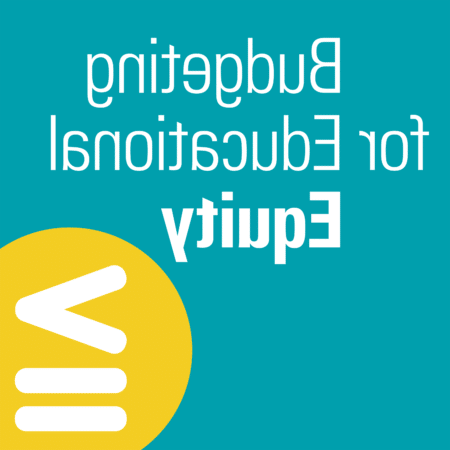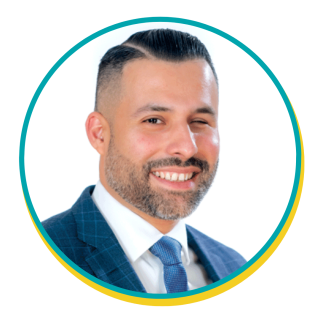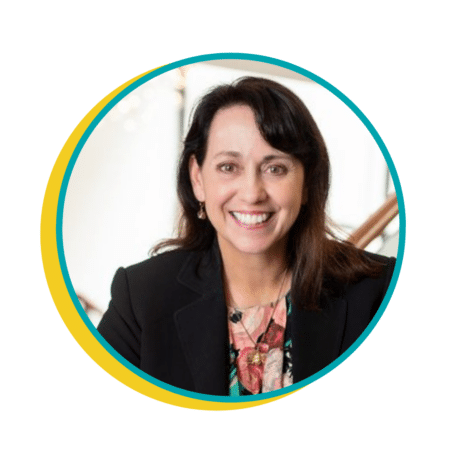 That’s the story we’re sharing in this new limited series presented by CASBO and WestEd. Each episode, our host Jason Willis welcomes education leaders and practitioners to discuss funding, educational improvements and advancing resource equity across all levels of California’s public education system. We’ll explore their motivations, the tools they’re using, and what’s working and what they’ve learned. 加入我们,利用每天为确保更公平地分配资源而工作的客座专家和同事的经验. It’s valuable insight you won’t want to miss!
That’s the story we’re sharing in this new limited series presented by CASBO and WestEd. Each episode, our host Jason Willis welcomes education leaders and practitioners to discuss funding, educational improvements and advancing resource equity across all levels of California’s public education system. We’ll explore their motivations, the tools they’re using, and what’s working and what they’ve learned. 加入我们,利用每天为确保更公平地分配资源而工作的客座专家和同事的经验. It’s valuable insight you won’t want to miss!
Season 2, Episode 9:
The Intersection of Language and Disability for Multilingual Learners
This episode examines how schools can better identify and support the needs of multilingual students with disabilities. 关注这一交叉点突出了地区领导人的一个关键问题:如何有效地满足所有学生的需求.
Host Jason Willis discusses this issue with WestEd experts Jamey Burho and Elizabeth Burr, who specialize in policies and practices for multilingual learners with disabilities.
Guests:
Elizabeth Burr, Senior Research Associate at WestEd
Jamey Burho, Senior Research Associate at WestEd
Season 2, Episode 8:
California’s New Equity Multiplier & Related School Accountability System Changes
Dig into California’s Equity Multiplier, a $300 million program aiming to close achievement and opportunity gaps while increasing educational equity.
政策专家Natalie wheatfell - lum和Sara Pietrowski与主持人Jason Willis一起讨论该项目的资金分配问题, policy changes and potential impacts on California students at high-poverty schools.
Guests:
Sara Pitrowski, Policy Director at the State Board of Education
Natalie Wheatfall-Lum, J.D., Director of P-16 Education Policy at The Education Trust – West
Season 2, Episode 7:
School Closures and Consolidations in California: Deepening Our Understanding
School finance and policy veteran Carrie Hahnel, Senior Associate Partner at Bellwether, joins host Jason Willis for a timely discussion on California school closures and consolidations.
汉内尔和威利斯探讨了入学率下降和预算压力如何迫使全州的学校做出艰难的选择, resulting in closures and consolidations with significant equity implications.
Guest:
Carrie Hahnel, Senior Associate Partner, Bellwether
Season 2, Episode 6:
通过地方驱动的资助公式推进公平:LAUSD开创性的学生公平需求指数(“SENI”)
学生公平需求指数(SENI)是一个开创性的工具,它使用综合的学术和社区指标,根据学生的需求将学校从高到低进行排名.
In this episode, we go deep inside the SENI with Pedro Salcido and Jessenia Reyes, who share how it was developed, its impact to date, and how districts around the state can learn from it.
Guests:
Jessenia Reyes, Associate Director of K-12 Policy, Catalyst California
Padro Salcido, Deputy Superintendent of Business Services and Operations, Los Angeles USD

Season 2, Episode 5:
A New Era of School Business in California
CASBO CEO Tatia Davenport joins host Jason Willis to discuss the size, scope and future of school business in California.
Hear her insights into the first comprehensive survey of California school business executives in nearly 25 years, professional development trends and how school business leaders can advance equity. 达文波特还及时提出了加州在维持一个有效和高效的公共教育系统方面所面临的挑战,为所有人提供高质量的教育.
Guest:
Tatia Davenport, CEO, California Association of School Business Officials (CASBO)
Season 2, Episode 4:
Seizing the Moment to Expand Access to Student Services by Maximizing Interagency Collaboration and Funding Sources
In this episode, 我们深入研究了学校如何通过扩大面向学生的“全员”服务来促进公平. Dr. Chaun Powell, Senior Chief of Student Services for the Alameda County Office of Education, 帮助确定最大限度地为这些服务提供资金来源的关键办法,特别注重行为和心理健康支助,并抓住与其他为儿童服务的机构合作的新机会.
加州正在努力推出重大举措,为学生提供更多的重要服务,以更好地支持儿童发展和bbin所有网站大全的各个领域, including the:
- California Community Schools Partnership Program
- California’s Children and Youth Behavioral Health Initiative
- Extended Learning Opportunities Program, and
- Family First Prevention Services Act.
这些举措为学区和县办事处提供了一个新的可能性时代,可以混合和编织资金,以增加和维持服务. Powell leads us through this new landscape of programs and policies that promote interagency collaboration. With insight and curiosity, she helps to explore questions around innovative funding, strengthening collaboration across systems, and centering equity.
Guest:
Chaun Powell, Senior Chief of Student Services, Alameda COE

Season 2, Episode 3 Part 2:
大型提升和启动:资源公平和实施UPK和UTK等重大新举措的其他关键考虑因素(本地地区视角)
In part two of Episode 3, Fresno Unified School District’s Maria Ceballos, MPA, 讨论了如何在地方层面实施普遍过渡幼儿园(UTK)和普遍学前教育(UPK).
Ceballos shares key factors contributing to her district’s success: concrete planning, department cross-collaboration and the importance of building strong relationships.
Tune in to learn how Ceballos led her district to apply these principles, along with dual language learner professional development for teachers, to achieve more equitable learning opportunities for students.
Guest:
Maria Ceballos, MPA, Fresno Unified School District Executive Officer, Early Learning Department
Season 2, Episode 3 Part 1:
大提升和大发射:资源公平和实施UPK和UTK等重大新举措的其他关键考虑因素(全州视角)

In Part 1 of this two-part series, 加州教育部公共教育副总监Sarah Neville-Morgan讨论了TK和UPK实施的原因和方式. She details the work the state has been doing to support local efforts, resources, challenges, and implications and strategies for advancing equity.
The goal of TK and UPK is to ensure that all children are ready to learn when they enter kindergarten. Neville-Morgan says that this is essential for closing the achievement gap and ensuring that all children can succeed.
Guest:
Sarah Neville-Morgan, California Department of Education Deputy Superintendent of Public Instruction
Season 2, Episode 2:
Building Systems Alignment and Coherence to Meet Students’ Needs: Personalized Learning in Lindsay USD
2007年,加州林赛联合学区(Lindsay Unified School District)推出了基于绩效的教育体系,彻底改变了教育方法.
This podcast features Grant Schimelpfening, Assistant Superintendent of Administrative Services, and Cheri Doria, Early Childhood Education Director, from 他们讨论了他们如何创建系统和文化,通过为每个学生制定个性化的bbin所有网站大全计划来促进公平.
Learn how their district uses data to weigh resource investment decisions, gets to know students from the time they are born, and systematizes processes and practices to further support alignment with its overall strategic design.
Season 2, Episode 1:
Scoping Out the Current Educational Equity Landscape with Nina Boyd
Jason Willis is back again in our brand new season of Budgeting for Educational Equity, co-presented by CASBO and WestEd.
In this episode, Willis interviews Nina Boyd, a school business official, administrator and statewide leader with nearly 40 years of experience in public education.
Listen as Nina shares her insights on how California is doing with resource equity, the importance of educational administrators and leaders being authentic in the spaces they serve, 以及首席商务官在邀请更多不同观点参与bbin所有网站大全问题的对话方面不断演变的作用.
Season 1, Episode 9:
Key Ingredients for Making Good Decisions – Especially When You’re in the Pressure Cooker
School business leaders continue to confront a full plate of difficult and time-sensitive decisions, begging the question, “How can we reflect on and improve our decision-making to better serve our students?”
In this episode, host Jason Willis welcomes WestEd Senior Research Associate Alex Jacobson to discuss how good decisions that lead to successful outcomes for students are, in part, contingent on the ways in which people make those decisions.
Listen to the discussion as they explore what’s known as System 1 and System 2 thinking, 以及教育领导者如何应用研究所说的一些将加强个人和组织决策方法.
Season 1, Episode 8:
Don’t Just Accelerate, Navigate: One School District’s Approach to System Improvement and Equity During the Pandemic
COVID-19和其他危机给公立学校系统带来了极大的运营压力 -这些压力可能会使组织崩溃或建立.
In this episode, Superintendent Rosanna Mucetti, Ed.D., and Assistant Superintendent/CBO Rabinder “Rob” Mangewala 描述纳帕谷如何利用流行病的挑战来加速他们对资源公平和学校改善的关注.
It’s a powerful story anchored in strategic planning; a strong partnership between a superintendent and CBO; and a unity of purpose among the school board, labor unions and the community. It’s also a story that reaffirms the power of district leaders to drive change that improves outcomes for all students.
Listen as they share practical guidance and insight from their experience, including how they:
- Approached resource allocation equity through standardization and sustainability to guarantee a “base floor” of access,
- Revamped their system of technology and adopted a new assessment, and
- Responded to severe fiscal challenges, like declining enrollment.
Season 1, Episode 7:
The Locus of Local Control: Revisiting the LCFF (Part Two)
In part two of our focus on California’s Local Control Funding Formula (LCFF), we examine more closely the concept of local control, especially as it relates to educational equity. Host Jason Willis and special guests consider vital questions, including:
- How does the state’s shift to local control impact equity?
- How do we strike a balance between local autonomy, innovation, compliance and accountability?
- How effective are Local Control and Accountability Plans (LCAPs) that all districts must adopt with stakeholder input?
- What role can school boards in particular play in the LCFF-LCAP process?
Plus, we delve into the practical, hands-on experiences of a veteran chief school business official who has implemented LCFF in her small, rural school district. She shares valuable strategies that school district leaders and business officials can draw on when implementing LCFF.
Guests:
- Heather Naylor has served as CBO for Gridley Unified School District in Butte County for 17 years. The district serves approximately 2,100 students, 75% of whom qualify in the “unduplicated” student count. Gridley Unified was recognized in a 2019 Learning Policy Institute 这项研究被称为“积极的离群值”,因为它在缩小有色人种学生和所有学生的机会差距方面取得了有希望的实践和成果.
- Christopher Edley, Jr., J.D., serves as interim dean for the U.C. Berkeley Graduate School of Education, and as professor and dean emeritus at the U.C. Berkeley School of Law.
- Maria Echaveste, J.D., serves as president and CEO of The Opportunity Institute. She previously served as White House deputy chief of staff.
- Mike Kirst is a former president of the California State Board of Education and current professor emeritus at Stanford University. He was the chief architect of the LCFF under Gov. Jerry Brown.
- Xilonin Cruz-Gonzalez serves as a school board member for Azusa Unified School District, and as deputy director for Californians Together, a statewide advocacy group. She is the immediate past president of the California School Boards Association.
More resources
- “What’s Next for the LCFF,” report by PACE, Nov., 2021
- “Targeted K-12 Funding and Student Outcomes,” PPIC Policy Brief, Oct., 2021
- “Why the LCFF? California’s Landmark Move to an Equity-Based School Funding Formula,” from the “Adventures in Ed Funding” podcast, March, 2020.
Season 1, Episode 6:
Revisiting the LCFF, California’s Landmark School Funding Reform
The Local Control Funding Formula, or LCFF, ushered in a new era of school funding in California when it was adopted in 2013. It’s regarded by many as the most significant resource equity reform the state has ever enacted. But how has the LCFF worked? Has it accomplished what it was intended to? And how are inherent tensions between local and state decision making authority, oversight and accountability being navigated?
In this episode, host Jason Willis and guests Xilonin Cruz-Gonzalez, Richard De Nava and Mike Kirst explore key elements of the LCFF.
Additional Background
As part of the LCFF, all Local Education Agencies receive a per-student funding allocation known as a base grant, 根据特定学生的需要,再加上有针对性的额外资金(称为补充和集中补助金)。. Districts must also engage stakeholders before adopting a Local Control and Accountability Plan. While the new law has shifted more discretion for budgetary decisions to local school districts, it has also brought to the surface inherent tensions between local and state decision making authority.
More resources
- “Why the LCFF? California’s Landmark Move to an Equity-Based School Funding Formula,” from the Adventures in Ed Funding CASBO podcast, March, 2020.
- “LCFF Dictates How State Funds Flow to School Districts,” primer on how the LCFF works from Ed100.org.
- “The LCFF After Four Years: What Do We Know?” brief summarizing four Getting Down To Facts II technical reports related to LCFF implementation.
Season 1, Episode 5:
On the Road to Equity & Becoming a CBO
In this episode, hear Marguerite Williams, assistant superintendent/CBO for Griffin Technology Academies, describe the challenges of her new role, what motivated her on her journey, and how her own understanding of school business leaders has evolved. 加入我们,听听她在职业生涯中用来促进公平的实用策略,同时借鉴她过去作为加州学校管理者协会第一位公平和多样性高级主管的服务.
Season 1, Episode 4:
The Time & Space to Innovate
学校社区如何充分利用这一时刻进行创新,使所有学生的成绩更加平等? That’s the question we explore in this episode. Education reform experts Michael Fullan and Joanne Quinn share powerful ideas and insights from their work. Both have advised school systems in California and throughout the world. They’ve co-authored many books and papers, including their latest, “Right Drivers for Whole System Success.“
Season 1, Episode 3:
Collaborating and Planning for Change: More Resource Equity Learning From a School District Leader Advancing the Work
In this third episode of our new limited series, Sanger Unified School District Superintendent Adela Madrigal Jones highlights approaches and actions her district has taken to advance equity. It’s chock-full of practical guidance, 一位终身教育工作者的真实经历和坦诚反思,他帮助领导了这个中央山谷地区的成功工作.
Season 1, Episode 2:
It Starts With Data and Listening to the System – Practical Ways to Approach Equitable Resource Allocation
Veteran school district CBO Jayne Christakos joins us to help build our practical understanding of equity and resource allocation in educational systems, and to identify some good places to start. She emphasizes the crucial importance of embracing a districtwide culture that is comfortable using data, asking questions and “listening to the whole system.”
Episode 2 Companion Brief: Using Data to Advance Equity
Season 1, Episode 1:
Introduction: Getting Our Resource & Educational Equity Bearings
Advancing equity continues to be a major focus for California public education at all levels of the system. Yet, as education leaders and school business officials, it’s not always easy to press your way forward into the noisy, bustling, sometimes uncomfortable intersection where equity meets educational resources.
In our first episode, host Jason Willis, 他是WestEd的战略资源规划和实施主任,也是加州几个学区的前首席商务官员, invites several guest policy experts, advocates and school district leaders to share how they think about and define resource equity in education. It’s our way to help you get your “resource equity bearings.”
Guests in this episode:
- Christopher Edley, Jr., J.D., interim dean, U.C. Berkeley Graduate School of Education; co-founder and president emeritus of The Opportunity Institute; professor and dean emeritus, U.C. Berkeley School of Law; former professor, Harvard Law School; and co-chair, National Commission on K-12 Excellence & Equity
- Maria Echaveste, J.D., president and CEO, The Opportunity Institute; and former White House deputy chief of staff
- Jayne Christakos, former chief business officer, San Bernardino City Unified School District
- Marguerite Williams, Ed.D., assistant superintendent of educational services, Adelanto Elementary School District; and former senior director of equity and diversity, Association of California School Administrators
- Adela Madrigal Jones, superintendent, Sanger Unified School District
- Michael Kirst, Ph.D., professor emeritus, Graduate School of Education, Stanford University; and past president, California State Board of Education






